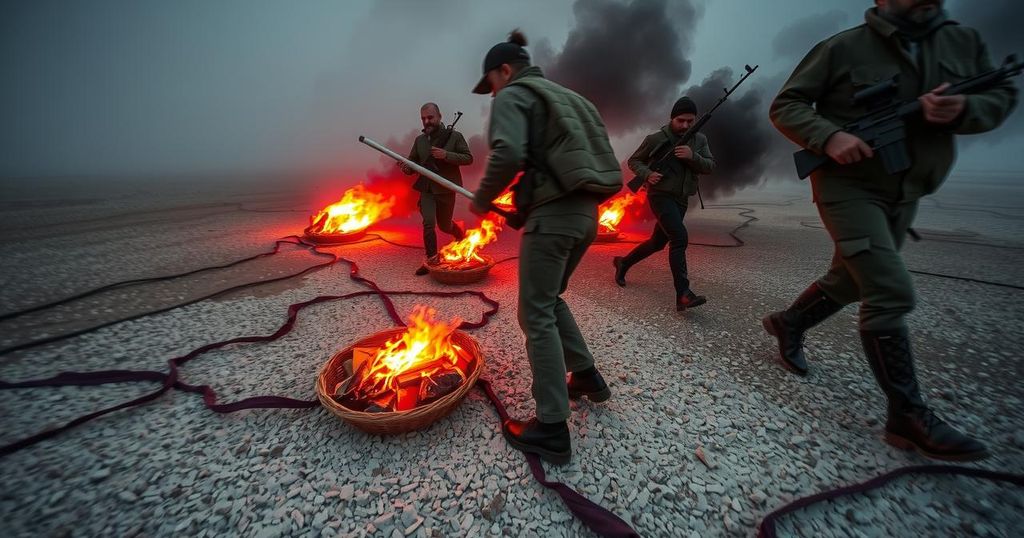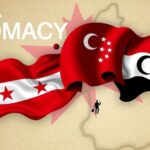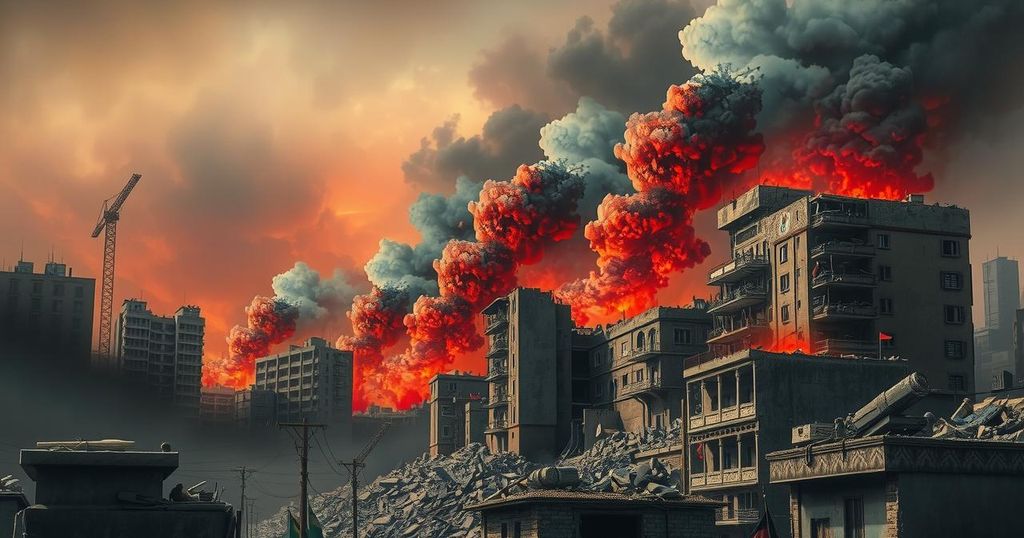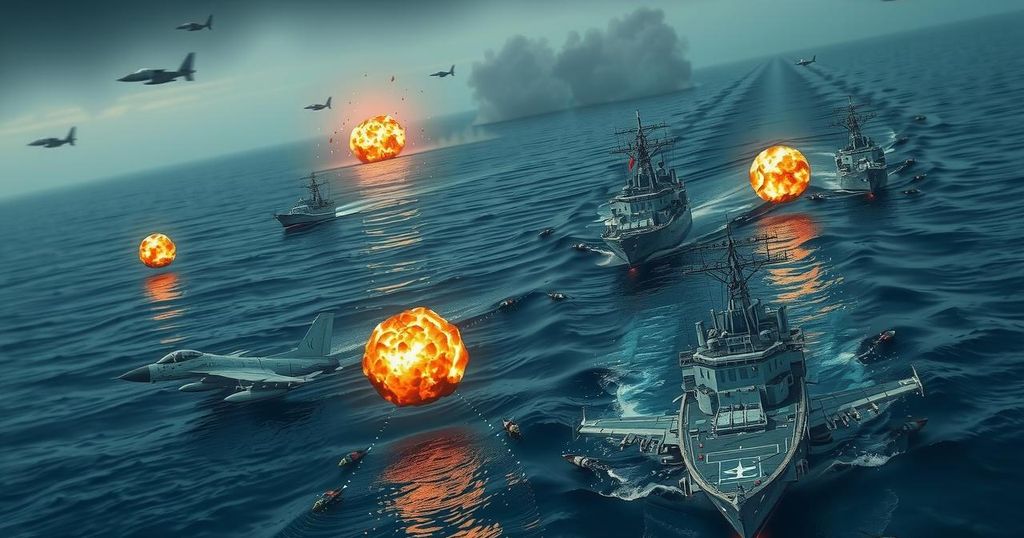Understanding the Escalation of Conflict in North-Western Syria
Rebel forces have launched their largest offensive against the Syrian government in north-western Syria, capturing key territories including parts of Aleppo. This escalation stems from a backdrop of a prolonged civil war that began in 2011, resulting in devastating humanitarian consequences. The conflict involves several regional and international powers, and the recent military actions highlight the fragile conditions in the region.
In recent developments in north-western Syria, rebel forces have initiated a significant offensive against the Syrian government, capturing extensive territory, including significant parts of Aleppo. This escalation follows a rapid withdrawal of Syrian troops, leading to renewed clashes near Hama. The situation is further complicated by air strikes conducted by Russia, a crucial ally of President Bashar al-Assad.
The ongoing conflict in Syria originated from a peaceful pro-democracy uprising in 2011, which escalated into a brutal civil war involving numerous regional and global powers. Over half a million lives have been lost, and millions displaced, with significant refugee crises extending beyond Syria’s borders. Until recently, the conflict appeared dormant as the Assad administration regained substantial control, aided by Russian and Iranian military support. However, substantial areas remain outside government control, notably those held by groups aligned with the United States in the northern and eastern parts of the country.
The last bastions of rebellion are located in the north-western provinces of Aleppo and Idlib, regions that house over four million displaced individuals. While the Islamist group Hayat Tahrir al-Sham (HTS) dominates this area, Turkish-supported factions also maintain territory, reflecting a complex mixture of allegiances. HTS, founded in 2012 initially as al-Nusra Front, has undergone considerable evolution but is consistently classified by many international entities as an al-Qaeda affiliate.
The recent rebel offensive arises from a history of sporadic conflict after a ceasefire brokered by Turkey and Russia in 2020. Recent hostile actions by the Syrian government and its allies, particularly during a time when they are preoccupied with other regional challenges, have emboldened HTS and its allies. Syrian President Assad has strongly condemned the rebels, labeling them as terrorists, and has vowed to suppress the rebellion.
Conversely, Western powers, including the United States and European allies, are advocating for a de-escalation in hostilities and urging a return to dialogue for a political resolution to the Syrian crisis. Turkish officials have called for reconciliation between the Syrian government and its people, emphasizing the need for a legitimate opposition to be included in the political process.
The situation in north-western Syria is a culmination of a prolonged and devastating civil war that has been ongoing since 2011. Originating from peaceful protests against President Bashar al-Assad, the conflict has drawn in various international stakeholders and led to an enormous humanitarian crisis. Multiple factions now vie for control over the territory, with the recent offensive marking a dramatic shift that indicates the fragile nature of the ceasefire agreements previously in place. The interplay of local and foreign influences, including support for various rebel factions by Turkey and the backing of Assad’s regime by Russia and Iran, creates a complex geopolitical landscape.
The current offensive in north-western Syria not only escalates the conflict between rebel forces and the Assad regime but also highlights the intricate dynamics of regional and international politics involved in the civil war. With both humanitarian and geopolitical consequences, the situation demands urgent attention from the international community to facilitate dialogue and end the long-standing conflict. The escalated military actions underscore the precarious balance of power, where external alliances significantly impact domestic strife within Syria.
Original Source: www.bbc.co.uk








Post Comment